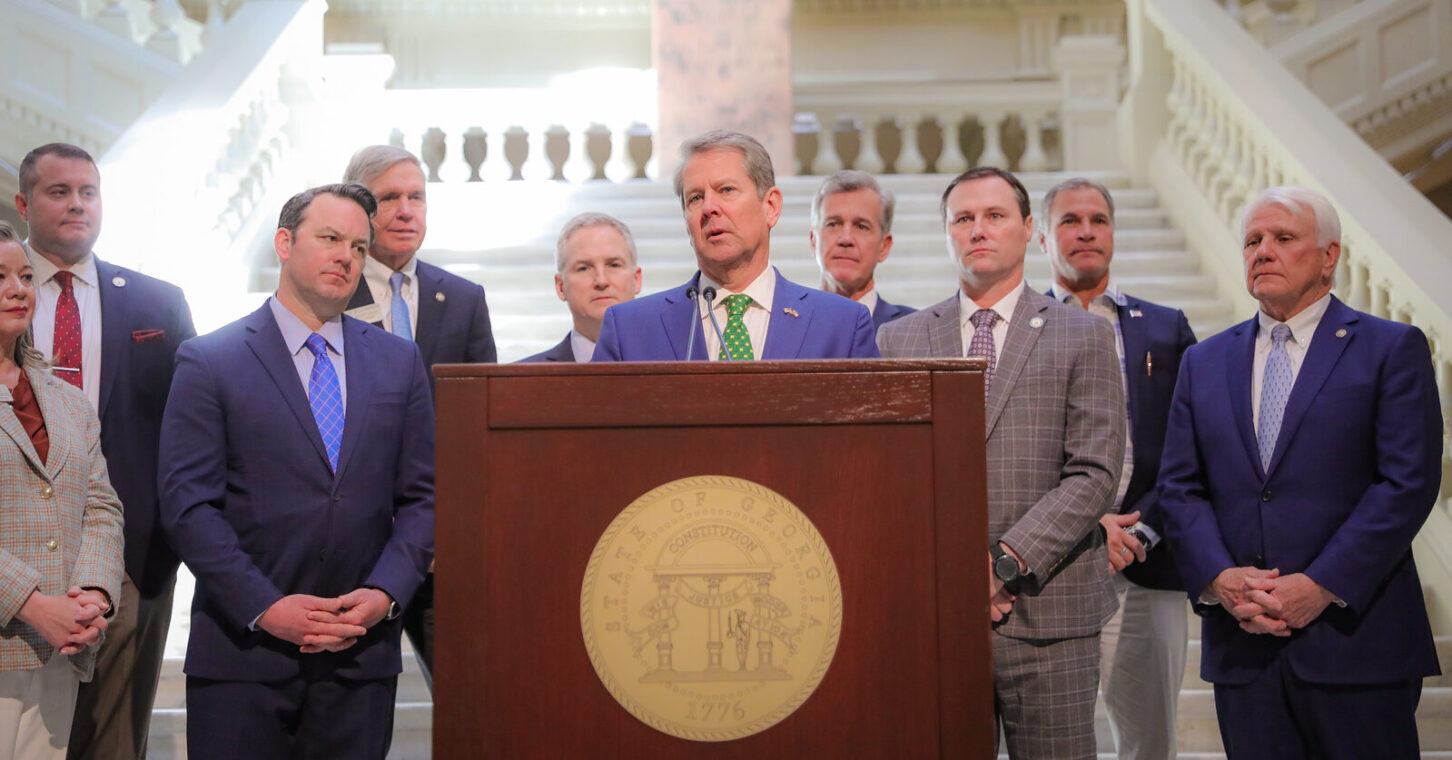
Every legislative session is weird in its own way. There are sessions dominated by the budget, sessions oriented toward a particular brand of election-year politics, sessions shaped by a new personality in leadership or large turnover among the rank and file.
The 2025 session is unique in this way: There has been exactly one “tier one” issue — lawsuit reform.
There is no “tier two.”
Everything else sits, at best, in “tier three.”
Those partial to a particular bill might quibble with my characterization. I have my own pet interests related to my work. But an objective observer would say that’s how things have played out under the Gold Dome.
So far.
Another quirk this year is that the biggest issue was resolved well before the final day. The most comprehensive measure of lawsuit reform, Senate Bill 68, won final approval with six legislative days left.
That left a veritable eternity still to go after lawmakers had accomplished The One Thing Capitol Leaders Agreed They Had to Do. (Technically, passing a budget is that One Thing, but we’ll get to that momentarily.)
The legislative formula requires solving for the quotient of leverage and time. High leverage and short time are a powerful combination. But as time in the 2025 session runs out, leverage is arguably at a low ebb. Remember: Tier one has already been taken care of, so we’re working on tier three and below.
With that, here are some issues to watch as lawmakers race toward adjourning Sine Die:
The budget:
Lawmakers must produce a balanced budget each year. In times as flush as these, pulling that off shouldn’t be too tricky. Yet, some lawmakers have taken exception to Gov. Brian Kemp’s relatively austere approach to estimating revenues, which has produced large surpluses of late. (That’s if “austere” is really a word we can apply to budgets that have doubled to $40 billion from $20 billion in just a decade.)
The House and Senate are staging their annual tug-of-war over spending, and Kemp’s staff will monitor the discussions closely. Will one side or another find a creative way to placate the others?
Taxes:
The two primary tax bills, issuing rebates to Georgia taxpayers and lowering the state’s flat rate for personal and business income, are already sitting on Kemp’s desk. With one legislative session remaining, he is on the verge of completing the program of cutting rates to 4.99% on which he and legislators embarked just three years ago.
That said, while Kemp will be out of state office after 2026, many lawmakers will seek other positions, and still others intend to remain in the General Assembly. Creating a new milestone beyond 4.99% – say, lowering the rate to 3.99% – would signal to taxpayers that they will keep going. It’s worth starting that conversation ahead of the 2026 session.
Education:
Part of the back-and-forth over the budget concerns funding for the state’s nascent Promise Scholarship. It was fully funded, then it wasn’t; now it is again. Where will it end up? Also unresolved is a proposed increase to the cap for Georgia’s tax-credit scholarship.
For public schools, a measure to spur local districts to approve more quality charter schools awaits action by the Senate. And school-safety legislation, a House priority following the tragic shooting last fall at Apalachee High School, won final approval on Monday after lengthy debate in both chambers.
Regulatory reform:
With Washington fired up about the exploits of DOGE, Georgia lawmakers are taking a more cool-headed approach.
The Senate passed a bill to strengthen legislative oversight of executive-branch rule-making, which the House is still mulling. There’s also a measure with bipartisan support that would enhance transparency for federal regulators’ directives to state education officials.
To switch metaphors as baseball fans celebrate the season’s beginning, Georgia legislators have already hit a home run with lawsuit reform. But they can still score more with some solid singles and doubles.
